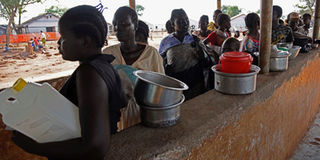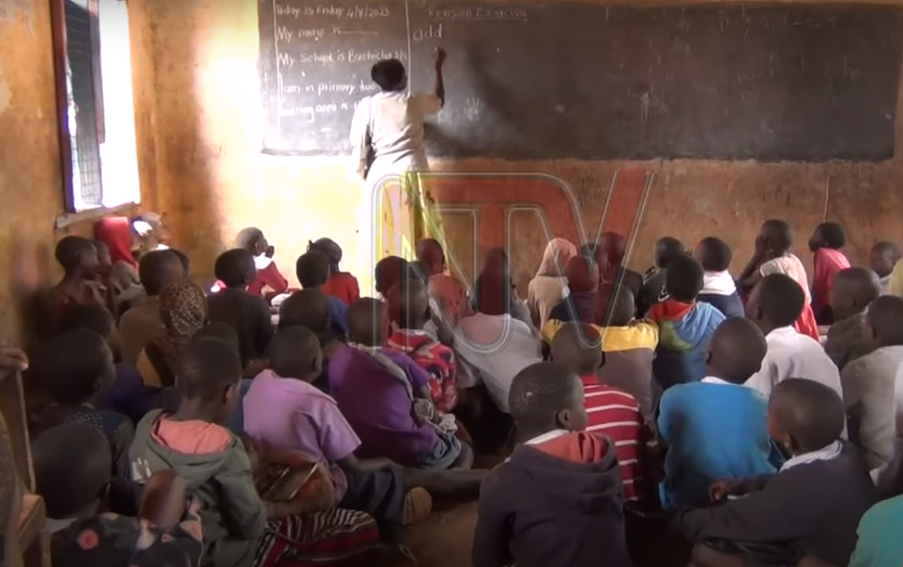South Sudanese refugees complain of high living costs

Some of the South Sudan refugees queue to receive food at the Nyumanzi Transit Centre in Adjumani District in 2018. FILE PHOTO
What you need to know:
- The South Sudan crisis started in 2013 when forces loyal to president Salva Kiir and former vice president Riek Machar, had misunderstanding thus resulting in fighting.
- There are more than 1.5 million South Sudan nationals living in Uganda as refugees.
South Sudanese refugees, who preferred to settle in the urban centres such as Gulu Municipality, are complaining of the high cost of living.
The South Sudan nationals fled their homes in March last year when the Sudan People’s Liberation Army (SPLA) forces launched a manhunt for several militia groups in Imatong state that were said to be a security threat to president Salva Kiir’s government.
The refugees under their umbrella, South Sudanese Urban Refugees, describe their situation as deplorable, characterised by a state of hopelessness as war rages on in their home country.
There are more than 1,800 refugees, who have been registered in Gulu Town alone.
These include; 1,000 between the ages of zero and 19 years, 700, who are between 19 and 45 years and 100 between 45 years and above, who are mostly living within camps.
One of the refugees in Gulu Town, Mr John Thuc, says unlike in the past, South Sudanese pounds have become very weak, making it very difficult for them to pay for the basic needs such as education and health services.
“Many of us cannot afford education for our family members and many of our children have dropped out of schools,” he says.
Mr Maketh Juuk Apeth, South Sudanese leader in Gulu, says the situation is worsened by the fact that they are not given any humanitarian aid from any organisation.
“Despite the fact that we are refugees, it is not clear why refugees living outside designated settlements are not being taken care of,” he asks.
He adds that since they cannot afford the high cost of living in the areas, they choose to reside in camps.
Other issues the refugees are faced with are; social protection, safety, security and lack of economic activities to earn from.
However, Mr Charles Olweny, an officer with Lutheran World Relief, a global humanitarian organisation working with refugees, notes that protecting refugees, who are not living in designated settlements in the country should be treated as a priority.
He adds that if the policy gap is addressed, women and children, who are most burdened as a result of becoming refugees will live in dignity.
Gulu District LC5 vice chairperson Simon Peter Oola, notes that most local governments are hand-tied when it comes to addressing the challenges facing urban refugees.
Mr Oola explains that local governments do not receive funding from central government specifically earmarked for addressing issues concerning refugees.
“Refugees’ welfare still remains in the hands of the Office of the Prime Minister (OPM),” he says.
The commissioner in-charge of refugees in OPM, Mr Apollo Kazungu, says the government policy is to support only those registered in refugee settlements not in urban centres.




